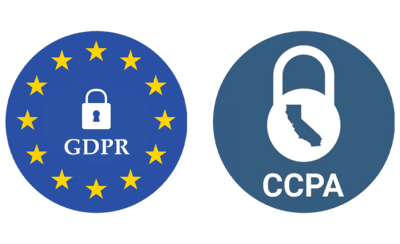Avoid Well-Being Washing

We have all heard of Greenwashing. This concept refers to brands and companies claiming to act for the environment to retain and gain customers all the while not acting on these claims, or worst, actually actively damaging the environment through their actions.
It is called washing because it refers to the first time this term was coined. Back in 1986, Jay Westerveld wrote about Hotel chains asking their customers to keep their towels to avoid washing them unnecessarily under the pretense of saving water when it was in fact, a way to save money first.
If going Green is all about our planet’s health, similar toxic patterns can be observed when it comes to our health and well-being.
FROM GOOD TO HAVE, TO TOP PRIORITY
Up until recently, to care about the well-being of your employees and actively implement actions and activities to enhance that well-being was something considered ‘good to have’.
Very often, most of these actions had actually been ‘reactions’. Only when facing a problem, would the company act and figure out a solution. More often than not, it was on the individual to do most of the work to ‘get better’ and come back to work ‘fixed’.
Another approach was ‘health perks’ such as discounted or free gym memberships for employees who often barely had the time to eat lunch at their desks…
When Covid hit and everyone from top to bottom of the organization chart was faced with their own well-being crisis (stuck at home, no more routines, no one to talk to, no boundaries…) mental health went from bottom to top of the priority list for everyone.
What used to be perks is turning into a competitive advantage more and more employees are looking into when applying for positions.
JUMPING ON THE TREND TRAIN
When something starts to become ‘trendy’ there is of course the pressure from Society (be it the media or the market) to keep up and if not set the trend, at the very least follow closely.
That pressure is often what leads some slightly less scrupulous businesses to cut corners, i.e, focusing on symptoms rather than the roots of the issues (offering organizational coaching when what is needed is to diminish the workload); putting the responsibility on the employee rather than reflecting on the role of the management or assuming everything is fine because no one dares to speak up about personal issues!
ONLY WHAT IS MEASURED IS ACTED UPON
Not every poor ‘well-being policy’ stems from careless corporate management. Very often it simply comes from the novelty of it all, the lack of knowledge around the topic and not knowing where to start or what to focus on first. It is important to train HR professionals and supports them in figuring out the best tools at their disposal and KPIs to look at for their specific teams.
It is only by being able to measure the impact of its policies and actions that the company will truly make a difference in the long term.
SIMPLE STEPS TO START WALKING THE TALK
Research shows (source) there are 5 pillars of well-being to experience daily:
– Connecting (with people)
– Be physically active
– Learn new skills
– Give to others
– Pay attention (to the present moment)
These can really inspire easy steps to implement and measure (encourage more one on ones, organize walks at lunch break, create opportunities for training and skill sharing, learn from one another, celebrate each others’ wins…)
In line with these recommendations we would advise starting by connecting with your people: Actually, talk and try to figure out, together, or with representatives depending on the size of your business, what are the main issues.
Start small, review, and iterate!
Recent posts
-
Workplace mental health training for managers08 Jan 2024
-
6 employee mental health statistics that will make you take mental health seriously18 Dec 2023
-
MENTAL HEALTH: BEYOND THE LIMITS OF CORPORATE INSURANCE11 Dec 2023
-
4 tips for employees to reduce Stress and anxiety in the workplace27 Nov 2023
-
The many perks of mental health days13 Nov 2023
 mental well-being and coaching services
mental well-being and coaching services 

